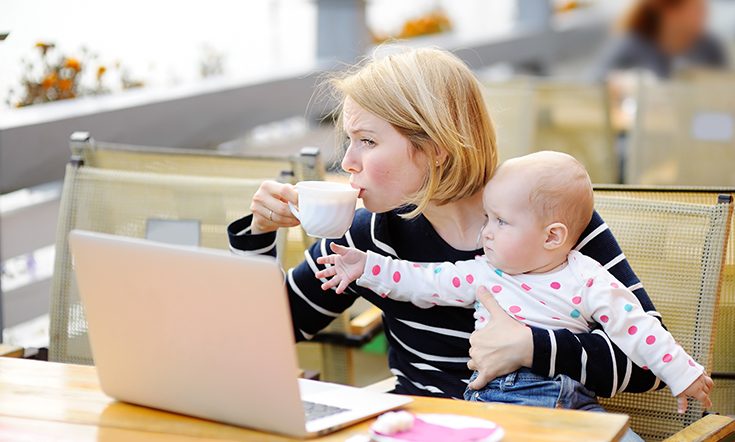

In those first ‘new born’ weeks of hazy days, constant night feeds and nappy changes, it can feel like coffee is the only life-giving source. You wouldn’t be the first new Mum to reinvigorate her coffee addiction. But it’s worth considering how much you’re consuming, particularly if you’re breast feeding.
According to the Australian Breastfeeding Association, breast feeding mothers can consume ‘moderate amounts’ of caffeine without it impacting too much on your baby. A moderate amount of caffeine would look like a few cups a day.
However, new borns can be sensitive to caffein so it’s worth being mindful of how much you consume. Caffein does filter through to breast milk at the rate of around one percent of the caffein the mother has consumed. Breast milk reaches it’s peak level of caffeine about 60 minutes after she has consumed her coffee.
Coffee is the most obvious source of caffeine but it can also be found in other drinks and in chocolate. Here is a guide to caffein levels in caffein-containing food and drink:
Food Caffeine level (mg)
Percolated coffee 60–120 mg/250 mL cup
Formulated caffeinated drinks / ‘Energy’ Drinks 80 mg/250 mL can
Instant coffee (1 teaspoon/cup) 60–80 mg/250mL cup
Tea 10–50 mg/250mL cup
Coca Cola 48.75 mg/375 mL cup
Milk chocolate 20 mg/100 g bar
Green tea 35-70 mg/250mL cup
Take-away coffee 51-332 mg/serving3
Signs that perhaps the baby has taken in too much caffeine are they may become colicky, unsettled or jittery. Or they may not sleep as well as usual. The mother’s let-down reflex may also be affected if she has had too much caffeine. But what is an ok for one mother may be too much for another, as we all process caffein at different rates.
If you are concerned the best thing to do is observe your baby and make a judgement based on how they respond after you’ve consumed caffein.























